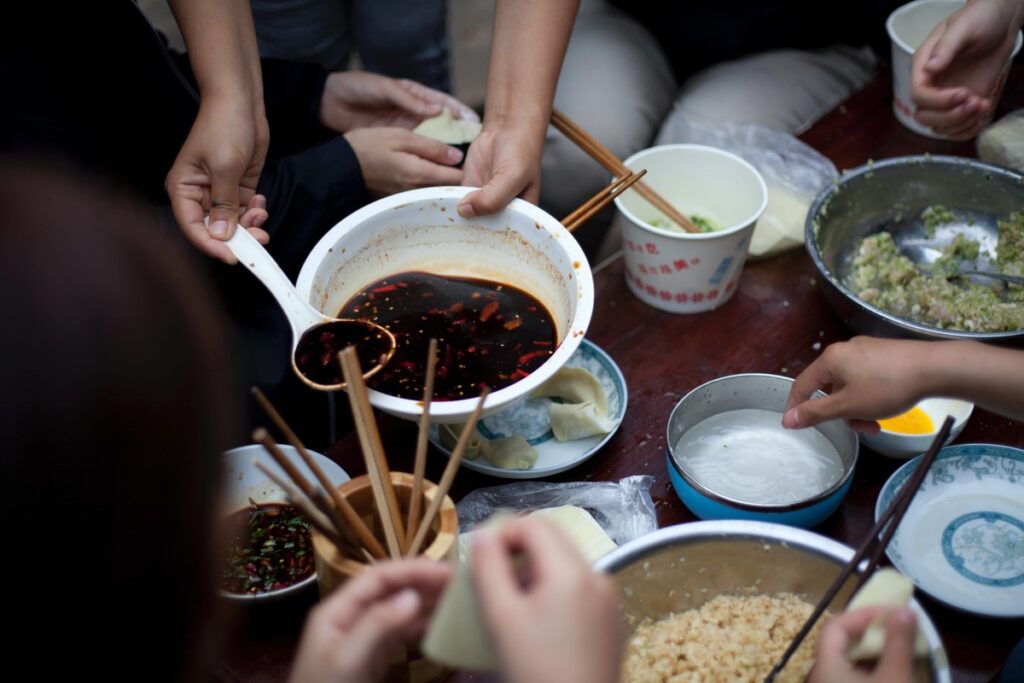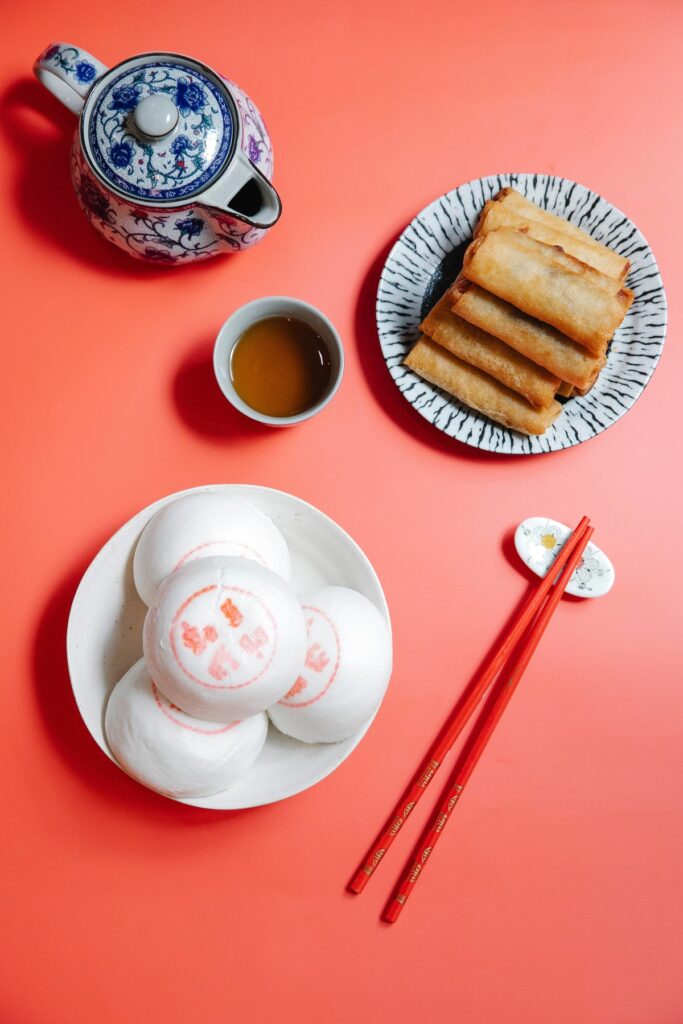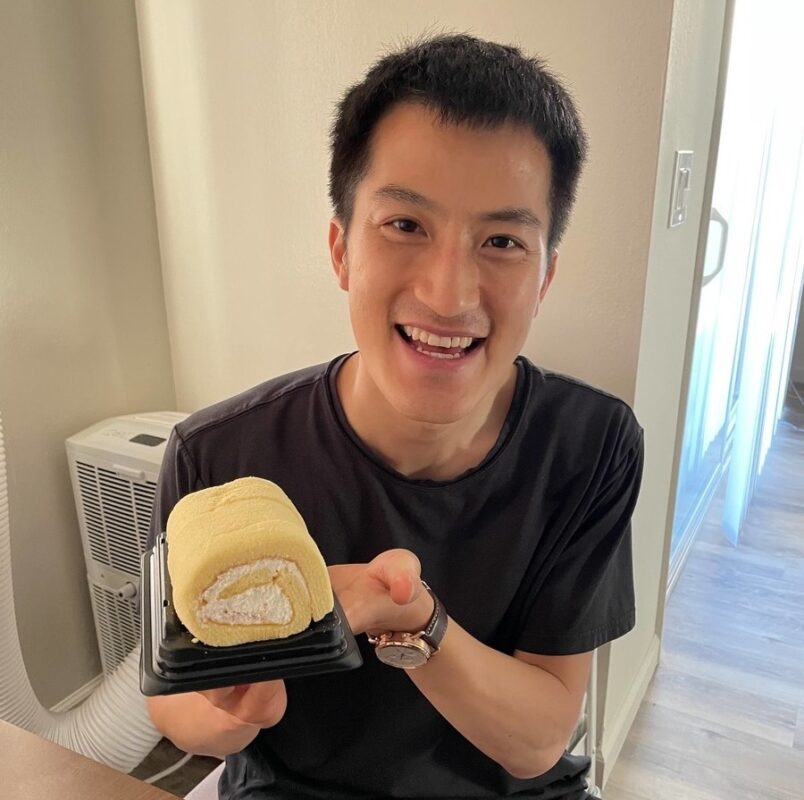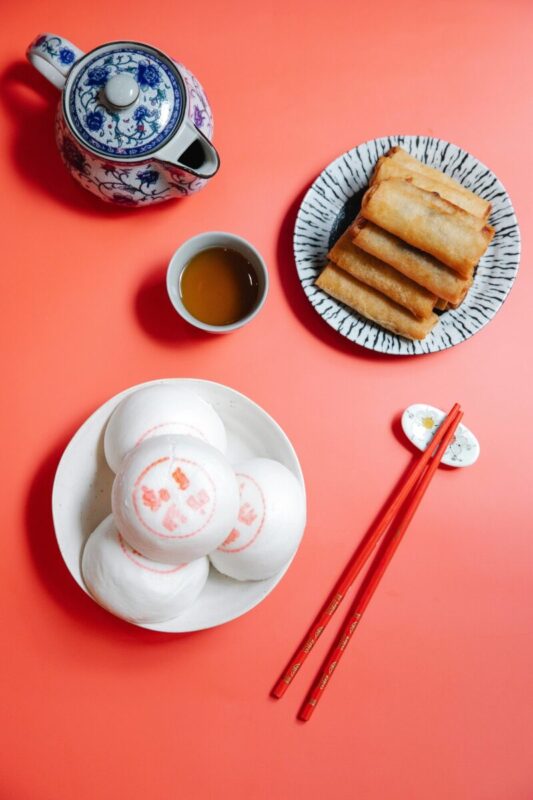Whether you are like me, a second generation Asian American with immigrant parents, part of an Asian household, dating someone with Asian parents, or even just friends with someone with Asian parents, it is inevitable that you will come across the undisputed fact: for many Asians, food is the primary love language. The practice of gifting food, bringing food as a guest, and cooking food is super important to many Asian cultures. Asian parents love to ask about whether you’ve eaten, overfeed you at meals (with sliced fruit before or after meals), and give you food to take home as a way to express their love and care for you.

Reasons Why Asian Parents Gift Food
Why is this? Here are a couple reasons I can think of why Asian parents might use food as the dominant expression of love in a relationship:
- Food is concrete and non-verbal. The parent-child relationship in Asian cultures has special designation. Asian parents understand that to love their children is to take responsibility for and to provide for them, which is why Asian parents and grandparents love to feed their children at any opportunity. Love in the relationship is often not expressed verbally, if at all. Check out this WongFu video on “What Asian Parents Don’t Say…”
- Food symbolizes care, even over distance and time. It is more likely for second generation Asian Americans to live independently from their parents rather than in an extended household structure. If the distance is far, Asian parents can utilize food delivery apps and grocery delivery services in their stead. Even if the distance is near, dropping off meals and groceries, to Asian parents, is the next best thing to physically sharing a meal together.
- Providing food can reflect their own upbringing. Immigrant parents may have experienced real food shortages in their childhood upbringing. Parents always want the best for their children, which often translates into providing what they did not have growing up. This reflection by Clara Wang is a much deeper exploration of her Chinese roots and their family’s relationship to food.
- Food is their pride. Good food can take a long time to prepare. It can be a labor of love, attention, and effort for parents to cook a special meal for their children. Parents like to feel good about prepare something that they know they are good at.
- Food is practical. At the end of the day, food is hard to ignore. Whereas sentimental gifts can be tossed or forgotten, household items can be hit or miss, and other experiential type gifts are hard to plan for, food is always immediate. Everyone eats. Unexpected meals and groceries may still cause more anxiety and burden than originally intended, but they have the benefit of being ephemeral.

Different Responses to Receiving Food
What are the different responses to receiving food from an Asian parent?
- Gratitude. The healthiest response first. There really is nothing better than Mom’s cooking. (or Dad’s cooking or Grandma/Grandpa’s cooking, for that matter). You celebrate that you get to enjoy good food without having to cook.
- Veiled gratitude. Cue the eye roll, the tch click of the tongue, the “Mom, you shouldn’t have…” (read my reflection on Chinese Polite Refusal). You take the groceries or tupperwares with a sigh of frustration, but later secretly enjoy the meal and am grateful for the thoughtfulness.
- Confusion. You might not totally understand why food is such a big deal to them. You’re just starting to notice or catch on to the fact.
- Annoyance. It just bothers you that your parents don’t listen. Now you just have more food in your fridge or freezer that you have to deal with.
- Fear of disappointment. You don’t want your mother-in-law, your auntie, your girlfriend’s parents, to think you’re an ungrateful wretch. You might not even like the food. But you take it anyways because you don’t them to be disappointed. Plus, it’s the polite thing to do.
- Aversion of conflict. Maybe you’ve told your mom already that you’d prefer to cook your own food. Or that you already have your own grocery delivery service. But she never listens, and rather than fight about it again, you just close your mouth and accept it with a forced smile.
- Anger. A legitimate response. The alternative to the situation above, where instead of caving in, you simply fly off the handle.
- Duty. You know that a good son or daughter or good boyfriend/girlfriend would be more appreciative of their parents. Or, your parents instructed and have taught you to accept the food gifts from the Asian aunties that gave it to you.
- Embarrassment. You might think it’s childish or belittling of your Asian parents to always be asking about whether you’ve eaten and gotten groceries for the week. “Are you saying I can’t cook or can’t take care of myself?” It becomes symbolic of a more personal issue.
- Understanding. You understand where your Asian parent is coming from. You accept graciously.

This article was prompted by direct personal experience. I have many happy memories being over at my grandmother’s house for meals, lounging on the sofa afterwards in food coma. The first thing I look forward to going back home for the holidays is a bowl of homemade noodle soup. My mom recently sent me an unexpected delivery of snacks and groceries for my birthday, and while I had a mixture of the responses from above, I still am ultimately appreciative.
What about you? Any reasons or responses that I’m missing?

Be First to Comment